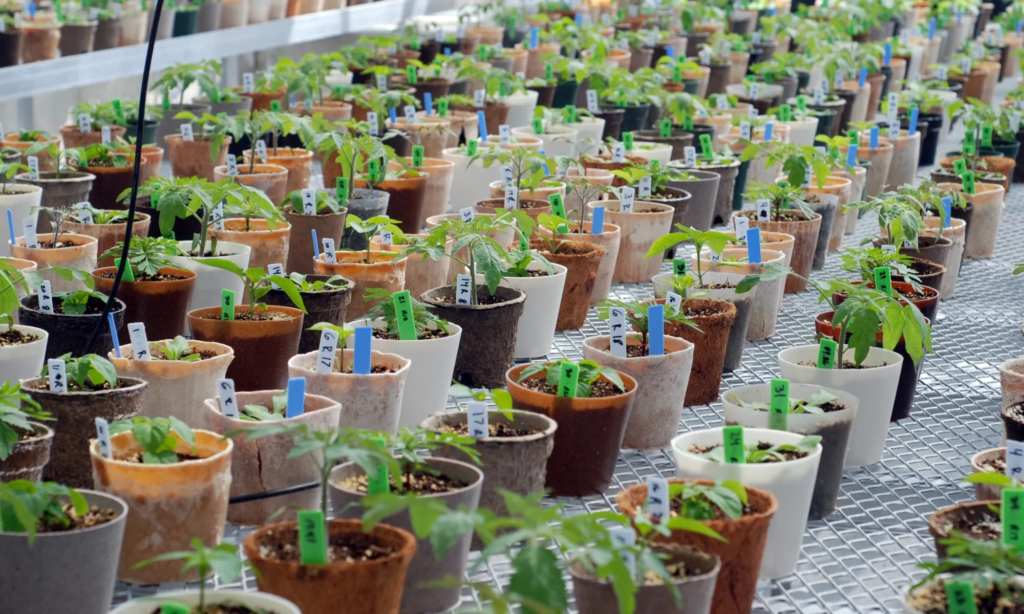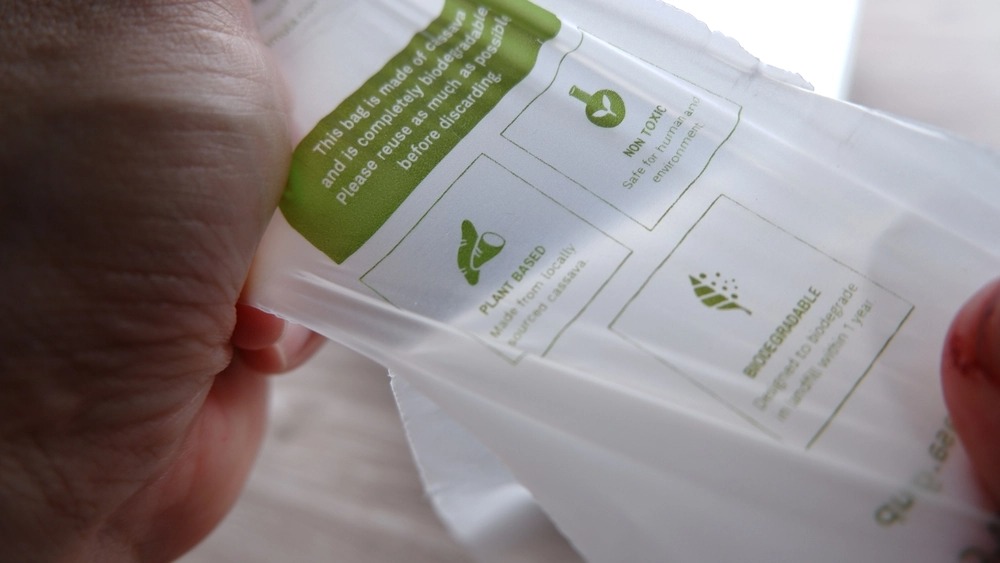In recent years, the demand for eco-friendly packaging solutions has grown significantly. Among the various alternatives, biodegradable industrial packaging bags are gaining traction due to their sustainability and minimal environmental impact. As India continues to witness rapid industrial growth, the shift toward biodegradable packaging options presents an exciting opportunity for manufacturers, businesses, and consumers alike. In this blog post, we will explore the future of biodegradable industrial packaging bags in India, focusing on the challenges, benefits, and innovations that are shaping this green revolution in the packaging industry.
Introduction to Biodegradable Industrial Packaging Bags
Biodegradable packaging refers to materials that can decompose naturally through the action of microorganisms, bacteria, or fungi. These materials break down into natural elements, reducing environmental harm. Unlike traditional plastic bags, which can take hundreds of years to decompose, biodegradable industrial packaging bags offer a more sustainable option.
In India, the demand for biodegradable alternatives has surged due to growing environmental concerns, government regulations, and consumer awareness. The shift to biodegradable packaging aligns with India’s commitment to reducing plastic pollution and achieving sustainability goals.
The Growing Need for Biodegradable Packaging in India
India is one of the largest consumers of plastic packaging, with industries ranging from food and beverages to pharmaceuticals relying heavily on plastic bags for packaging. However, plastic pollution has become a serious environmental issue, with millions of tons of plastic waste accumulating in landfills, oceans, and rivers each year.
The Indian government has taken several steps to combat plastic waste, including banning single-use plastics in various states and encouraging the adoption of alternative materials. Biodegradable packaging bags offer a promising solution to address this issue while ensuring that industries can continue to meet their packaging needs.
As public awareness of environmental issues grows, consumers are increasingly demanding eco-friendly products. Many companies are responding to this demand by opting for biodegradable packaging solutions. In the industrial sector, packaging is a significant contributor to waste, and transitioning to biodegradable packaging can significantly reduce the ecological footprint of businesses.
Benefits of Biodegradable Industrial Packaging Bags
The shift to biodegradable industrial packaging bags offers a multitude of benefits for both businesses and the environment.
1. Environmental Sustainability
One of the most significant advantages of biodegradable packaging is its environmental impact. Unlike traditional plastic bags, which can take centuries to decompose, biodegradable bags break down naturally within a few months to a year, depending on the material. This reduction in waste accumulation helps decrease pollution and protects ecosystems, especially marine life, which is severely affected by plastic waste.
2. Compliance with Government Regulations
India has implemented various regulations to reduce plastic waste. The ban on single-use plastics in several states is pushing businesses to look for sustainable alternatives. Biodegradable industrial packaging bags help companies comply with these regulations and avoid fines or penalties associated with non-compliance.
3. Enhanced Brand Image
Consumers are becoming more conscious of the environmental impact of their purchasing decisions. By adopting biodegradable packaging, companies can enhance their brand image, demonstrating their commitment to sustainability and attracting environmentally-conscious consumers. This can be a significant differentiator in an increasingly competitive market.
4. Improved Waste Management
Biodegradable industrial packaging bags contribute to more efficient waste management systems. Unlike plastic bags, which often end up in landfills, biodegradable bags break down into organic components, which can be composted or treated in waste management facilities. This leads to reduced waste accumulation and helps improve the overall efficiency of waste processing systems.
Challenges in the Adoption of Biodegradable Packaging Bags in India
While the benefits of biodegradable packaging bags are clear, there are several challenges that need to be addressed to ensure widespread adoption in India.
1. Cost of Production
Biodegradable industrial packaging bags are typically more expensive to produce than traditional plastic bags. The raw materials used to manufacture biodegradable bags, such as plant-based polymers or bioplastics, can be costly. This cost difference can make biodegradable packaging an unattractive option for small and medium-sized businesses looking to keep production costs low.
2. Limited Availability and Infrastructure
Despite the growing demand, biodegradable packaging bags are still not as widely available as plastic bags in India. Additionally, the infrastructure for manufacturing and recycling biodegradable bags is not as developed as it should be. To meet the increasing demand, there is a need for investment in production facilities, supply chains, and recycling infrastructure for biodegradable materials.
3. Consumer Awareness
While awareness of the environmental impact of plastic is increasing, there is still a lack of awareness about the benefits of biodegradable alternatives. Many consumers may not know how to properly dispose of biodegradable bags or may not understand the difference between biodegradable and compostable bags. Educating consumers about the correct disposal methods and the environmental advantages of biodegradable bags is crucial for their widespread adoption.
Innovations in Biodegradable Packaging
The future of biodegradable industrial packaging bags in India is being shaped by several innovations in materials, manufacturing processes, and recycling methods. These advancements promise to overcome some of the challenges associated with biodegradable packaging and further enhance its sustainability.
1. Plant-Based Bioplastics
One of the most promising innovations in biodegradable packaging is the use of plant-based bioplastics. Materials such as polylactic acid (PLA), which is derived from renewable resources like corn or sugarcane, are increasingly being used to create biodegradable packaging bags. These bioplastics break down quickly and do not release harmful chemicals into the environment, making them a better alternative to petroleum-based plastics.

2. Advanced Manufacturing Techniques
Advancements in manufacturing technologies are making the production of biodegradable packaging bags more cost-effective. Automation and improved production processes are driving down the cost of biodegradable packaging, making it more accessible to businesses of all sizes. As these technologies become more widespread, the cost of biodegradable packaging is expected to decrease further.
3. Compostable Packaging
Compostable packaging is an exciting innovation that is gaining popularity as a biodegradable alternative. Unlike traditional biodegradable bags, which break down into organic material in landfills, compostable bags decompose in composting environments and can be used to enrich soil. This makes them an even more sustainable option for packaging, particularly in industries related to food and agriculture.
4. Recycling and Upcycling Initiatives
Recycling and upcycling technologies for biodegradable packaging are also evolving. Many companies are exploring ways to recycle biodegradable bags into new products, further reducing waste. Additionally, biodegradable bags made from agricultural waste, such as cornstarch or rice husks, are being developed, which can be used for upcycling into other sustainable products.
The Road Ahead: The Future of Biodegradable Packaging in India
As India continues to grapple with the challenges of plastic waste and environmental degradation, the future of biodegradable industrial packaging bags looks promising. With government support, technological advancements, and a shift in consumer attitudes, biodegradable packaging is poised to become a mainstream solution for industries across India.
To realize this future, businesses must invest in research and development to improve the efficiency and cost-effectiveness of biodegradable packaging. At the same time, consumers must be educated on the benefits of biodegradable packaging and the importance of proper disposal. Only then can biodegradable packaging bags truly make a significant impact on India’s environmental landscape.
Conclusion
The future of biodegradable industrial packaging bags in India is bright, but it requires collaborative efforts from manufacturers, businesses, consumers, and the government. By addressing challenges such as cost, infrastructure, and consumer awareness, biodegradable packaging can become a sustainable alternative to plastic packaging. As innovation continues to drive advancements in materials and manufacturing processes, the widespread adoption of biodegradable packaging in India could play a pivotal role in reducing plastic waste and fostering a more sustainable future for the country.
